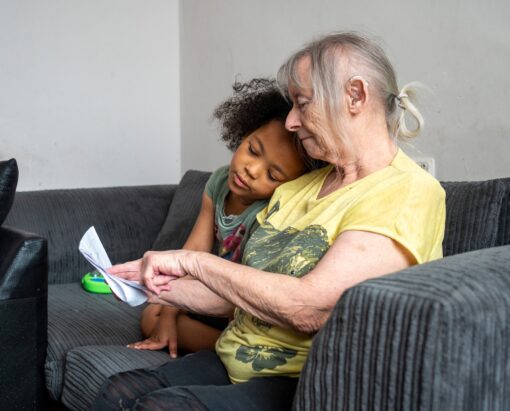Support and advice
Becoming a kinship carer can be overwhelming and there’s a lot of information to take in. Whether you are new to kinship care, already caring for a child or supporting a family member or friend, we’re here to help. Find out more about the support and advice we can offer.
Contact the Kinship advice team

Talk to someone
Being a kinship carer is rewarding, but hard. Talking about what you're experiencing can really help. So whether it's one of our advice workers, or another kinship carer, find someone to talk to.
Talk to someone
Get advice and information
There are lots of different ways you can access help and advice from Kinship. Whether you’re looking to understand more about kinship care or need help on a specific topic, we're here for you.
Get advice and information
Peer support groups
Peer support groups can be a great space to talk to other kinship carers without judgement about what you're going through. Find out more about the service, and find a group that suits you, online or in-person.
Support groups
Free training and events
Kinship carers tell us their journey can be overwhelming and confusing. To help you navigate this complex system, we run workshops and events both online and in-person. Find out more.
Free training and events
Kinship Compass
Use our new Kinship Compass search tool to discover what support is available to you, both locally and nationally, to help you navigate your kinship journey.
Kinship Compass
Join our community
Join our community to get the latest updates direct to your inbox. From the support, information and advice we offer, to our latest news and key developments for kinship families, events and campaigns.
Join our Kinship CommunityJoin our community
Sign up for emails to keep up to date with the information that’s important to you, from support and advice for kinship carers, to our latest news, events and campaigns.
